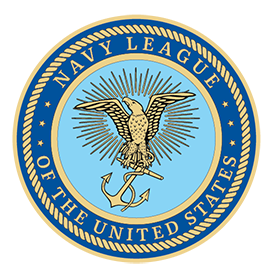| TELLING THE NAVY LEAGUE STORY: SHEILA MCNEILL | |
| Tuesday, June 25, 2019 | |
|
Our "Telling the Navy League Story" series takes a look at what makes our members so passionate to volunteer their time and support the sea services. Name: Sheila McNeill What’s your personal connection to the sea services before you became a Navy League member? I had no connection. In fact, my husband was in the Navy, but when we married he was already out of the Navy. He was in for four years but he wanted to be in the Navy League and, at that point, women did not have any kind of leadership, really were not even members in the councils, so I went with him. He later became [council] president, and when he was president, he asked to me find some speakers, and then that good man asked me to introduce some and it went on for several years. I went to Kings Bay and opened a business there, and I went to a Navy League meeting and they were showing a meeting of the president’s time in the Bahamas. It was his children on the beach, so I went over to him and said, “Do you have a program chairman?” He said, "No, that's the reason I am showing my home movies," and I said, "May I do it?" And that's how I got started. Can you tell me about a time or event you recall where you felt like your work as a volunteer made a real difference? I know when we recognize young people in the military, it makes a difference. I had the opportunity when I was national president to go out in the Sequoia, which was yacht that John Kennedy used to take out. I went out on this yacht, and they had young men who had been injured in the war, and there was a young man there who lost both of his hands and he had new fixtures to use for hands. He and I got to talking and laughing, and I'm challenging him to try to pick up my coin with his new hands and I later think, what a horrible thing to have done, but he did it. He did it. Afterward, he was so excited, so he kept having me challenge him more and then he said, “You know ma’am, I'd sure like to stay in the Marine Corp if I can do it.” So I don't know that I had anything to do with it, but I did talk to a lot of people and his picture was on the cover of Marine News about two months later, and he was teaching other Marines. When you run into people like that who give so much and you realize what little I give, no matter how much I do, it's so little [compared] to what so many of our people are doing. How have you personally been affected by your work through the Navy League? I'm a smarter person for that. We have a lot of educational programs. I love legislative affairs. I was vice president of legislative affairs for a number of years, and really understanding what the services need, going to Washington, talking to them as a citizen. Not a contractor that is making money on it. And I love our contractors, and we can't do what we do without them. In fact, I lobby for them sometimes too, because in order to get these things done you've got to get the parts made and built as we are looking at our submarines in Kings Bay that are going to be replaced. So, I love the fact that when you go to your legislator, you can say, “I do this because I'm a citizen. I do it because we need a strong sea service.” And I think that's probably the most beneficial thing. When you've studied, when you get the papers written, and you go and they listen to you, and later you see changes made. And I think that's for all of us. We want to know that there is a reason for what we do and there's some feedback on it and rewards, and our rewards are when we see our sea services receive what they badly need. If someone's not a Navy League member why should they join? They should join because they're an American. They should join because they appreciate our military. They should join because they're civilians, and they're not having to do all the things our military's having to do. They should join thinking about those families and those children who say good-bye to their parents for six months and three months and all periods of time. They should join, because they'll be smarter. They can join, because they'll feel a heck of a lot better. |
|


